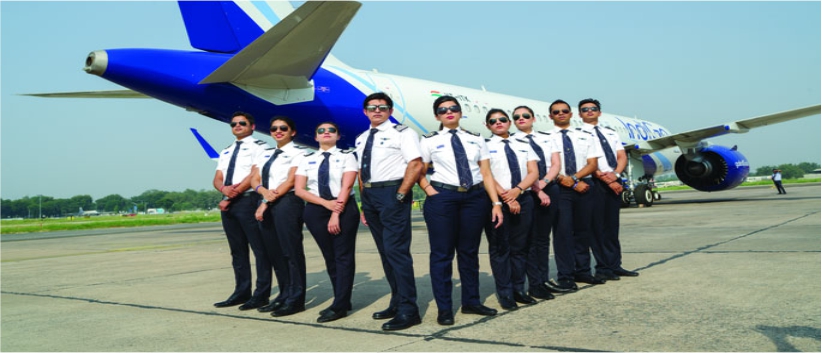
Pilot School
Are you dreaming of soaring through the sunny skies of Florida and becoming a pilot? Choosing the right pilot school is crucial for achieving your aviation goals. With countless options available, selecting the perfect one can be overwhelming. But fret not! Our comprehensive guide will help you navigate through this process with ease. From location to cost to accreditation, we’ve got it all covered. So fasten your seatbelt and get ready for takeoff as we embark on this exciting journey together towards choosing the right pilot school in Florida!
Introduction
When it comes to choosing a pilot school in Florida, there are a few things you need to take into account. In this guide, we will introduce you to the concept of pilot schools and help you decide if one is right for your family.
Pilot schools are public charter schools that have more flexibility in their educational programs and operations than traditional public schools. They are often able to offer innovative and specialized curriculum and services that can better meet the needs of their students.
There are currently over 100 pilot schools in Florida, serving students in grades K-12. While they are open to all students, each pilot school has its own admissions process and may give preference to certain groups of students (such as those from low-income families or with special needs).
Pilot schools are not without their critics, who argue that they receive too much public funding without being held accountable for their results. However, many families find that pilot schools provide a much-needed alternative to traditional public schools.
If you’re considering a pilot school for your child, the first step is to research the options in your area and find one that best meets your family’s needs.
Types of Pilot Schools in Florida
There are four main types of pilot schools in Florida: public, private, magnet, and charter.
Public Pilot Schools: Public pilot schools are funded by the state and are open to all students who meet the school’s enrollment requirements. These schools must follow the same curriculum and standards as traditional public schools.
Private Pilot Schools: Private pilot schools are not funded by the state and may have their own admissions requirements. These schools often have a more focused curriculum than public schools and may offer specialized programs or courses.
Magnet Pilot Schools: Magnet pilot schools are public schools that offer specialized programs or courses in a particular subject area. These schools often have selective admissions requirements and may require students to complete an application process.
Charter Pilot Schools: Charter pilot schools are public schools that operate under a contract with the state. These schools have more flexibility in their operations and curriculum than traditional public schools.
Benefits of Attending a Pilot School in Florida
There are many benefits to attending a pilot school in Florida. One of the most obvious benefits is the weather. Florida has some of the best weather in the country, which makes it an ideal place to train to be a pilot. The state also has a large number of airports, which gives students plenty of opportunities to get experience flying.
Another benefit of attending a pilot school in Florida is the cost. The state has many affordable schools that offer quality training. Additionally, there are a number of financial aid options available for students who attend Florida pilot schools.
Florida pilot schools offer students access to a wide variety of resources. For example, many schools have partnerships with airlines that allow students to get internships or even job offers after graduation. Additionally, Florida pilot schools often have strong relationships with aviation companies, which can help students find jobs after graduation.
What to Look For When Choosing the Right Pilot School in Florida
When you’re ready to take the plunge and become a professional pilot, choosing the right flight school is critical. With so many schools to choose from, it can be tough to know where to start. Here are a few things to look for when choosing the right pilot school in Florida:
1. A Good Reputation: One of the most important things to look for in a flight school is a good reputation. Ask around and see what other pilots have to say about the schools you’re considering. Read online reviews and check out the Better Business Bureau ratings.
2. FAA Certification: All flight schools must be certified by the Federal Aviation Administration (FAA). This ensures that the school meets certain safety and training standards. Make sure to check that the schools you’re considering are FAA-certified before making your final decision.
3. Affordable Tuition: Flight training can be expensive, so it’s important to find a school that offers affordable tuition. Many schools offer financing options or scholarships, so be sure to ask about those as well.
4. Experienced Instructors: When you’re learning to fly, you want to make sure you’re getting instruction from experienced and qualified instructors. Ask about the experience of the instructors at each of the schools you’re considering and make sure they have the necessary credentials.
5. A Good Safety Record: Safety should always be a top priority when choosing a flight school. Check out each school’s safety record and see
Popular Pilot Schools in Florida
There are many great pilot schools in Florida, but these are some of the most popular:
-Embry-Riddle Aeronautical University in Daytona Beach is one of the top flight schools in the country and offers a variety of programs to choose from.
-The University of Central Florida in Orlando also has a highly respected aviation program.
-Florida Institute of Technology in Melbourne is another great choice for aspiring pilots.
-Nova Southeastern University in Fort Lauderdale is another excellent option for those looking to become pilots.
No matter which school you choose, make sure you do your research and select the program that best fits your needs and goals.
Cost of Attending a Pilot School in Florida
The cost of attending a pilot school in Florida can vary greatly depending on the specific program and school you choose. However, there are a few general things to keep in mind when budgeting for your pilot training.
First, most pilot schools in Florida offer some form of financial aid or scholarships to help offset the cost of tuition. Be sure to check with each individual school to see what type of assistance they offer.
Second, the total cost of your training will also depend on how long it takes you to complete the program. Most full-time programs can be completed in around two years, but part-time or accelerated programs may take longer.
Remember that the cost of living in Florida is relatively low compared to other parts of the country. This can help offset some of the costs associated with attending a pilot school in the state.
With all these factors in mind, the average cost of attending a pilot school in Florida is around $50,000-$60,000 for a full-time program. However, this number can vary depending on the specific school and program you choose.
Alternative Options for Getting an Aviation License or Certification
There are many schools that offer aviation licenses and certifications, but not all of them are created equal. It’s important to do your research and choose a school that is reputable and has a good track record. Here are some alternative options for getting an aviation license or certification:
1. Flight schools. There are many flight schools across the country that offer training for aspiring pilots. Some of these schools are better than others, so it’s important to do your research and choose one that has a good reputation.
2. Online courses. There are also many online courses available that can help you get your aviation license or certification. These courses can be a great option if you’re unable to attend a traditional school due to time or financial constraints.
3. Self-study. If you’re willing to put in the work, you can also study for your aviation license or certification on your own. This option requires a lot of dedication and self-discipline, but it can be done if you’re up for the challenge.
Conclusion
We hope that this guide has been useful in helping you decide which pilot school to attend in Florida. With so many options, it can be difficult to decide what’s right for you. Take your time and do your research – make sure that the program suits your needs and offers all of the qualifications and certifications necessary for a successful career as a pilot. Good luck on your journey!
Write and Win: Participate in Creative writing Contest & International Essay Contest and win fabulous prizes.


